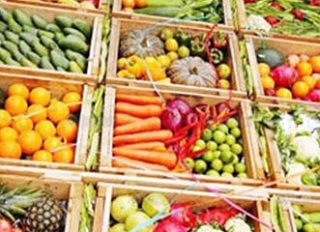BANGKOK, Apr 27 – Thailand’s food exports in 2011 are projected to reach over Bt855 billion (US$28.5 billion) in value thanks to the current worldwide economic expansion, according to the National Food Institute (NFI).
Amorn Ngammongkolrat, NFI executive vice president, said the overall picture for the Thai food industry this year is projected to increase by 6.5 per cent. Thai food exports are likely to reach Bt855 billion in value thanks to four per cent economic growth and continuous demand in food orders.

Higher demand in food imports from Thailand was also caused by the impact of the earthquake and tsunami in Japan, unrest in the Middle East and Africa, as well as unusual weather conditions damaging crops.
Mr Amorn said Japan is likely to import more food from Thailand owing to its recent calamity, while he said it was expected Japan will widen its food production base to other Asian countries such as Vietnam and Indonesia for foodstuffs such as rice, fish and seafood, sugar, palm oil, and livestock.
Meanwhile, Thailand’s food trade in the first quarter increased both in terms of exports and imports. The exports was valued at Bt222 billion (US$7.4 billion), an increase of 8.5 per cent year-on-year with export volume of 8.4 million tonnes, or a 1.8-per cent growth. The main export goods were rice, chicken, canned tuna, fruit and vegetables.
Thailand’s major export markets were Japan, accounting for 11 per cent, followed by the United States also at 11 per cent and China at 8 per cent, said NFI President Petch Chinabutr.
Thailand’s imports were worth Bt78.66 billion (US$2.6 billion), an increase of 32.2 per cent in the first quarter. Meanwhile, Thailand’s food export in the second quarter is expected to reach Bt211 billion (US$7billion), or a 2.6 per cent rise.
Speaking of the shortage of raw materials, the NFI vice president said many industries, particularly the processed shrimp industry, are facing this problem following recent flooding in Thailand’s southern provinces.
The short supply of cassava has also affected production of monosodium glutamate (MSG) and animal feed, he added.




